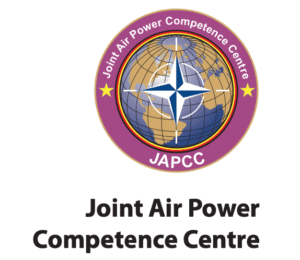 As part of the partnership between SpaceWatch.Global and Joint Air Power Competence Centre, we have been granted permission to publish selected articles and texts. We are pleased to present “NATO Space – Recognition versus Current Reality ”, originally published in the Joint Air Power Competence Centre Journal 31.
As part of the partnership between SpaceWatch.Global and Joint Air Power Competence Centre, we have been granted permission to publish selected articles and texts. We are pleased to present “NATO Space – Recognition versus Current Reality ”, originally published in the Joint Air Power Competence Centre Journal 31.

By Lieutenant Colonel Henry Heren, US Space Force, JAPCC
‘People see what they want to see and what people want to see never has anything to do with the truth.’1
Introduction
On 4 December 2019, the North Atlantic Council announced in London: ‘We have declared space an operational domain for NATO, recognising its importance in keeping us safe and tackling security challenges, while upholding international law’.2 In the months since that declaration, NATO developed an Initial Implementation Plan for Space, while outside NATO there have been numerous opinion pieces published recommending how NATO should proceed from both policy and strategy perspectives. The goal of each of these efforts has been to normalise Space within NATO, to recognise NATO’s reliance on Space-based capabilities and to promote greater understanding and appreciation for safeguarding the use of those capabilities. Questions abound concerning how NATO should integrate Space-based capabilities into existing policy, doctrine, strategy, operations, and exercises.
Germany concluded in its 2010 released Space Strategy that ‘a paradigm shift has occurred within space: once a symbol of the technology race and a contest between opposing systems, it is now, in every sense, a part of our everyday lives and an essential instrument for the achievement of economic, scientific, political and social goals’.3 In 2019, France released its Space Defence Strategy which ‘outlines the future of our space defence in accordance with a roadmap that looks to 2030 and beyond’.4 This document ‘marks a turning point for the future of our armed forces and for France’s capacity to act in all domains and maintain its strategic autonomy of assessment and decision’.5 Most recently, in June 2020, the United States (US) released its Department of Defense (DoD) Space Strategy which states: ‘This strategy identifies how DoD will advance spacepower to enable the Department to compete, deter, and win in a complex security environment characterized by great power competition.’ 6 Collectively, these nations and others are experiencing a renewed interest, excitement, and focus on Space-related activities. It is both natural and understandable that this enthusiasm will cross over into NATO organizations and discussions.
Several Alliance Nations have increased promotion of Space within their own militaries. France, Germany, Italy, the United Kingdom, and the US have moved to establish Space Commands to varying degrees, and the US took the additional step of establishing an independent military service, the US Space Force. The combined national activities, accompanied by growth in the commercial Space sector, have created an excitement surrounding Space endeavours not seen in several decades.
However, the various advancements in the commercial sector, national militaries, and NATO with regards to Space are far from equal. The enthusiasm felt across communities of interest does not mean all nations are at the same stage of development and capacity with regards to Space-based capabilities. This article will discuss the unique challenges facing NATO with regards to Space strategy, exercises, and personnel as compared to other national entities which in some cases possess more mature capabilities. The goal being to allow for discussion on a way ahead for Space in NATO based upon NATO requirements.
Strategy
Even as NATO recognised Space as an operational domain, NATO Secretary General Jens Stoltenberg emphasized: ‘NATO has no intention to put weapons in space. We are a defensive Alliance.’ 7 He further clarified, ‘NATO will continue to by and large draw on national space capabilities in support of its missions and operations’.8 Currently NATO receives Space-related Data, Products, and Services (DPS) from several member nations, and does not own or operate any Space-based capabilities. This means, currently, when it comes to the legal authority to operate Space-based Capabilities, including command and control, the NATO Command Structure (NCS) does not play an active role.9
However, this does not mean the NCS has no role to play with regards to Space. The NCS recently approved a concept for a NATO Space Centre, which will serve as a hub for Space-related information, expertise, and activities and directly liaise with the several nations providing Space DPS. Once operational and fully staffed, it will provide greater ability for NATO to coordinate requests for Space DPS.
In the meantime, with regards to Space Strategy, the focus must be on how NATO ensures the flow of Space DPS within the NCS. Calls for additional NATO Space Strategies10 ‘in parallel to its maritime and airpower plans’11 to ‘help NATO align members states on key tactics, tools, and procedures’12 are premature at best as this role is currently fully the purview of the member nations. In the future, if NATO reconsiders its position and seeks to acquire NATO-operated Space-based capabilities, then a strategy on how to utilise those capabilities will not only be prudent but necessary. NATO is currently better served focusing on how it will work with the nations to ensure interoperability and access to Space DPS across the Alliance, and not pursuing strategies that require both capabilities and authorities that it does not currently possess, and is unlikely to in the near future.
Exercises
It has been suggested that NATO develop large-scale Space-focused exercises, akin to the several Air, Land, and Maritime focused exercises. As previously noted, NATO does not own nor operate any Space-based capabilities, and calls for NATO to host large-scale Space exercises ignore the lack of capabilities present to necessitate such an exercise. NATO could benefit from sending personnel in an observer role to Space-focused exercises conducted by the nations, but that is significantly different from what is being suggested.
Recommendations for these exercises cite the ability ‘to systematically develop and refine space contingencies against red cell adversaries’13 to ‘signal allied resolve’.14 While laudable, these ideals overlook not only the lack of authorities within NATO regarding Space-based capabilities, but also the fact that NATO forces are reliant on Space DPS … which should be the focus of increased Space-participation in exercises.
With only 19 Space Billets spread across the NCS, and some of those filled by other than Space educated, trained, and focused professionals, for the time being NATO would be better served in ensuring its leaders understand the role Space plays in their operations beyond the mere acknowledgement of Space’s role as an operational domain. The Space Professionals who have served in the NCS have done an admirable job conveying that Space is important, to the extent that exercise controllers are not permitted to fully exercise degradation of Space DPS as it affects the exercise too significantly.
Space Professionals participating in exercises need to be given the latitude to meaningfully impact Space DPS so the entire exercise team can not only gain increased appreciation for how reliant they are upon Space-based capabilities, but also so Tactics, Techniques, and Procedures (TTP) can be developed from valuable lessons learned. Those TTPs will be critical if NATO finds itself in a conflict with not only peer-competitors, but also those competitors who are able to exploit asymmetric seams to reduce NATO Combat Capabilities.
Personnel
The creation of any new policies, strategies, doctrines, and expanded exercises will rely on educated and trained personnel to create and maintain them. Within the NCS, as previously noted, there are currently 19 Space Billets. The validity of that number drops precipitously when considering some of these positions are not filled, while still others are filled with people who are not educated, trained, nor experienced in Space Operations (as conducted by NATO nations). Add in the fact many personnel assigned to those positions are double-billeted, which means they work primarily on other activities and responsibilities, and focus only occasionally on Space-related issues, and the effectiveness of that already limited number of personnel is further reduced. The result is NATO has only a handful of Space-proficient personnel dedicated day-in and day-out to Space-related activities.
A concept calling for the establishment of the NATO Space Centre was recently approved by the Defence Ministers in October 2020. That concept includes an increase in Space personnel billets within the NCS, at the Space Centre and at the Joint Force Commands and subordinate organizations. Space educated and trained professionals are desperately needed to fill these billets if NATO is to increase its interoperability regarding Space.
Several challenges stand in the way of a trained and ready NATO Space cadre. Aside from the obvious funding concerns, the primary nations to which NATO would look to provide these professionals are, as noted earlier, reorganising their Space communities internally to their respective nations. They are therefore currently ill-suited to provide additional personnel to the NCS. This could result in personnel being assigned to the Space Centre without the requisite Space education and experience, requiring an increase in training and additional funding. It also means NATO may have a Space Centre severely lacking in resident Space Operations Expertise.
Conclusion
As Space Professional and policy-makers seek to influence and guide NATO’s approach to Space, they must be careful not to project ideas compatible within their national Space approaches onto NATO organizations, in other words to see what they want. This will include understanding that NATO’s use of Space is almost completely as a utility to support operations in other domains, not operations in the Space Domain. The Alliance has not placed an emphasis on Space significant enough to generate personnel and capabilities comparable to several of its member nations, and thus requires a different approach. National Space Professionals need to ensure they understand the capabilities and capacity within NATO, before promoting recommendations which NATO might not be prepared to incorporate or execute at this point in its integration of Space-related capabilities and expertise.
1. Bolaño, Roberto. 2666, Picador; Reprint edition (1 Sep. 2009).
2. NATO London Declaration, 4 Dec. 2019. Available at: https://www.nato.int/cps/en/natohq/official_texts_171584.htm. [accessed 20 Aug. 2020].
3. German Federal Ministry of Economics and Technology, Making Germany’s Space Sector Fit for the Future: The Space Strategy of the German Federal Government, Nov. 2010, p. 3.
4. French Ministry for the Armed Forces, Space Defence Strategy, 2019, p. 8.
5. French Ministry for the Armed Forces, Space Defence Strategy, 2019, p. 12.
6. US Department of Defense, Defense Space Strategy, June 2020, p. 1.
7. Paulauskas, Kestutis, ‘Space: NATO’s Latest Frontier’, NATO Review, 13 Mar. 2020. Available at: https://www.nato.int/docu/review/articles/2020/03/13/space-natos-latest-frontier/index.html. [accessed 30 July. 2020].
8. Paulauskas, Kestutis, ‘Space: NATO’s Latest Frontier’, NATO Review, 13 Mar. 2020. Available at: https://www.nato.int/docu/review/articles/2020/03/13/space-natos-latest-frontier/index.html. [accessed 30 Jul. 2020].
9. The NATO Communications and Information Agency (NCIA), which exists outside of the NATO Command Structure, does operate the payload of some communications satellites. However, the satellites themselves are control by a consortium of nations (France, Italy, and the United Kingdom). Additional information available at: http://www.eu2015lu.eu/en/agenda/2015/11/25-seminaire-SatCom/3_Presentation-Tom-PLACHECKI.pdf. [accessed 26 Aug. 2020].
10. In addition to NATO’s Overarching Space Policy approved on 27 Jun. 2019.
11. Silverstein, Benjamin, ‘NATO’s Return to Space’, War on the Rocks, 3 Aug. 2020. Available at: https://warontherocks.com/2020/08/natos-return-to-space/. [accessed on 3 Aug. 2020].
12. Silverstein, Benjamin, ‘NATO’s Return to Space’, War on the Rocks, 3 Aug. 2020. Available at: https://warontherocks.com/2020/08/natos-return-to-space/. [accessed on 3 Aug. 2020].
13. Bowman, Bradley and Andrew Gabel, ‘NATO Declares Space “Operational Domain”, but More Work Remains’, Defense News, 16 Dec. 2019. Available at: https://www.defensenews.com/opinion/commentary/2019/12/16/nato-declares-space-operational-domain-but-more-work-remains/. [accessed on 3 Aug. 2020].
14. Silverstein, Benjamin, ‘NATO’s Return to Space’, War on the Rocks, 3 Aug. 2020. Available at: https://warontherocks.com/2020/08/natos-return-to-space/. [accessed on 3 Aug. 2020].

is a NATO Space & Cyberspace Strategist assigned to the JAPCC. He is a Master Space Operator and a Fully Qualified Joint Staff Officer with operational and planning experience in the Pacific, Europe, Africa, and the Middle East. After more than 28 years’ service in the US Air Force, he transitioned to the US Space Force in 2020. He is a graduate of the US Air Force Weapons School, with experience in assignments focusing on Space, Cyberspace, and Electronic Warfare Operations.
The original version of JAPCC Journal 31, “NATO Space – Recognition versus Current Reality”, can be downloaded here JAPCC_J31.





